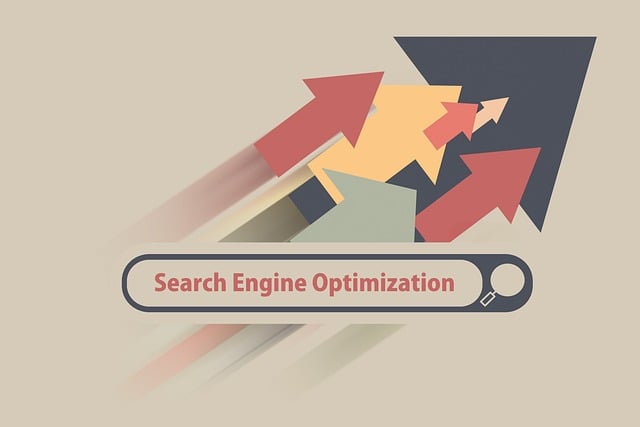Off-Page SEO is a strategic approach that focuses on external factors influencing website rankings. It involves building high-quality backlinks from reputable sources, engaging with social media, and managing online reputation through customer reviews. Quality backlinks act as votes of confidence, enhancing search engine assessment. Social media interaction builds brand relationships and visibility. Managing online reviews impacts trustworthiness and search rankings. Influencer marketing boosts brand authority and attracts new audiences. Ethical practices are vital to maintain rankings; avoid manipulative tactics like purchasing links or spammy interactions. Track KPIs using tools like Google Search Console for data-driven adjustments, keeping Off-Page SEO aligned with algorithm updates and best practices.
Off-Page SEO optimization is a powerful strategy to elevate your website’s visibility and search rankings. This comprehensive guide explores the art of enhancing your online presence beyond your site’s boundaries. We’ll uncover the essentials, from building valuable backlinks to harnessing social media’s potential and the influence of customer reviews.
Learn effective strategies, ethical practices, and measurement techniques to master Off-Page SEO and drive organic traffic.
Understanding Off-Page SEO: The Basics

Off-Page SEO refers to all activities that take place outside of your website but impact its search rankings. It’s a fundamental strategy that focuses on building authority and trust in the eyes of search engines like Google. Unlike On-Page SEO, which deals with optimizing content within your site, Off-Page SEO involves actions done to gain backlinks from other websites, social media engagement, and online reputation management.
The basics revolve around understanding that search engines use these external signals to determine a website’s relevance and quality. High-quality backlinks from reputable sources act as votes of confidence, indicating to search engines that your content is valuable and trustworthy. Conversely, low-quality or spammy links can have the opposite effect, potentially harming your site’s rankings. Thus, Off-Page SEO involves a careful balance of acquiring relevant backlinks, fostering positive online interactions, and maintaining a strong digital presence to drive organic traffic and improve search engine visibility.
Key Components of Effective Off-Page Optimization Strategies

Off-page SEO optimization involves strategies that take place outside of your website to boost its search engine rankings. Key components include high-quality backlinking, social media engagement, and online reputation management. Earning backlinks from reputable and relevant websites is a crucial aspect; these act as votes of confidence in the eyes of search engines, signaling that your content is valuable and trustworthy.
Social media plays a significant role by increasing visibility and driving traffic to your site. Engaging with your audience on platforms like Twitter, LinkedIn, and Facebook not only builds relationships but also helps search engines understand your brand’s personality and relevance. Additionally, managing online reputation through customer reviews and feedback can significantly impact rankings; positive reviews enhance trustworthiness while negative ones can be addressed to improve overall satisfaction.
Building High-Quality Backlinks: Strategies and Tips

Building high-quality backlinks is a cornerstone of effective Off-Page SEO strategies. These links act as votes of confidence from other websites, signaling to search engines that your content is valuable and trustworthy. To build them effectively, focus on creating compelling, shareable content that naturally attracts backlinks. This can include in-depth guides, original research, or high-quality multimedia resources.
Engage in strategic outreach by connecting with influencers and industry leaders in your niche. Offer collaborations, guest blogging opportunities, or valuable resources in exchange for links back to your site. Remember, quality trumps quantity; a single high-authority link from a relevant website can have a significant impact on your SEO efforts compared to numerous low-quality links.
Leveraging Social Media for Enhanced Visibility

In the dynamic landscape of digital marketing, social media platforms play a pivotal role in an Off-Page SEO strategy. By leveraging these channels effectively, businesses can significantly boost their online visibility and drive organic traffic to their websites. Social media offers a direct line of communication with target audiences, allowing for content sharing, engagement, and building brand authority. Every post, tweet, or share has the potential to reach thousands, if not millions, of people who may become interested in what your brand has to offer.
Additionally, social signals such as shares, likes, and comments can positively impact search engine rankings. Search engines like Google have acknowledged the influence of social media and now consider these signals as part of their complex algorithms. By creating compelling content and fostering meaningful interactions on social platforms, brands can enhance their search engine visibility, ensuring their website remains competitive in the ever-evolving digital arena.
Impact of Online Reviews on Your Search Rankings

Online reviews play a significant role in shaping a business’s online presence and search rankings, which is why they’re an essential aspect of Off-Page SEO. With the vast amount of information available at users’ fingertips, customer opinions have become a powerful factor for search engines when determining a website’s credibility and relevance. Positive reviews can enhance your search rankings by signaling to search algorithms that your business is reputable and trustworthy. This social proof encourages users to engage with your content, increasing time spent on site and reducing bounce rates.
Search engines like Google actively consider the sentiment and volume of online reviews when ranking websites. A high number of positive reviews can boost a website’s authority, pushing it higher in search results for relevant keywords. Conversely, negative reviews should be managed proactively to mitigate their impact. Addressing customer concerns publicly shows transparency and a commitment to improvement, which can also influence search rankings positively over time.
Utilizing Influencer Marketing to Boost SEO

In the realm of Off-Page SEO, influencer marketing emerges as a potent strategy to elevate your brand’s visibility and search engine rankings. By partnering with influential figures in your industry or niche, you tap into their established audiences and credibility. These influencers can endorse your products or services through authentic content creation, such as reviews, tutorials, or sponsored social media posts, which carry significant weight with search engines. Their endorsement acts as a vote of confidence for your brand, reinforcing its authority and relevance in the eyes of both consumers and search algorithms.
This collaborative approach not only amplifies your online presence but also introduces your content to new audiences who may not have discovered it otherwise. Influencers’ engaged followers tend to trust their recommendations, leading to increased traffic and potential customers for your business. As a result, well-executed influencer marketing campaigns can drive organic growth in search rankings, making it an invaluable component of any comprehensive Off-Page SEO strategy.
Measuring and Analyzing Off-Page SEO Success

Measuring off-page SEO success involves tracking key performance indicators (KPIs) to gauge the effectiveness of your strategies. This includes analyzing backlink profiles, monitoring website authority and domain rating changes, and evaluating referral traffic from high-quality sources. Tools like Google Search Console, Ahrefs, SEMrush, or Moz can help in obtaining these insights by providing data on link acquisition, broken links, competitor analysis, and ranking trends.
By regularly assessing these metrics, you can identify what’s working and what isn’t within your off-page SEO efforts. This data-driven approach allows for informed adjustments to your strategy, ensuring that your off-page optimization stays aligned with the latest algorithm updates and industry best practices.
Ethical Considerations in Off-Page SEO Practices

In the realm of Off-Page SEO, ethical considerations are paramount to ensure the longevity and integrity of a website’s rankings. Practices such as securing quality backlinks from reputable sources, engaging in social media interactions that naturally drive traffic, and collaborating with influencers or industry leaders must adhere to search engine guidelines to avoid penalties. Using manipulative tactics like buying links or participating in spammy forums can lead to negative consequences, including site deindexing and reduced visibility.
Webmasters should prioritize building a robust online presence through genuine engagement with other websites and social platforms. This involves creating valuable content that naturally attracts backlinks, collaborating on projects that offer mutual benefits, and fostering relationships within the industry. By focusing on ethical Off-Page SEO strategies, website owners can achieve sustainable growth in search engine rankings while maintaining the trust of both users and search engines.
